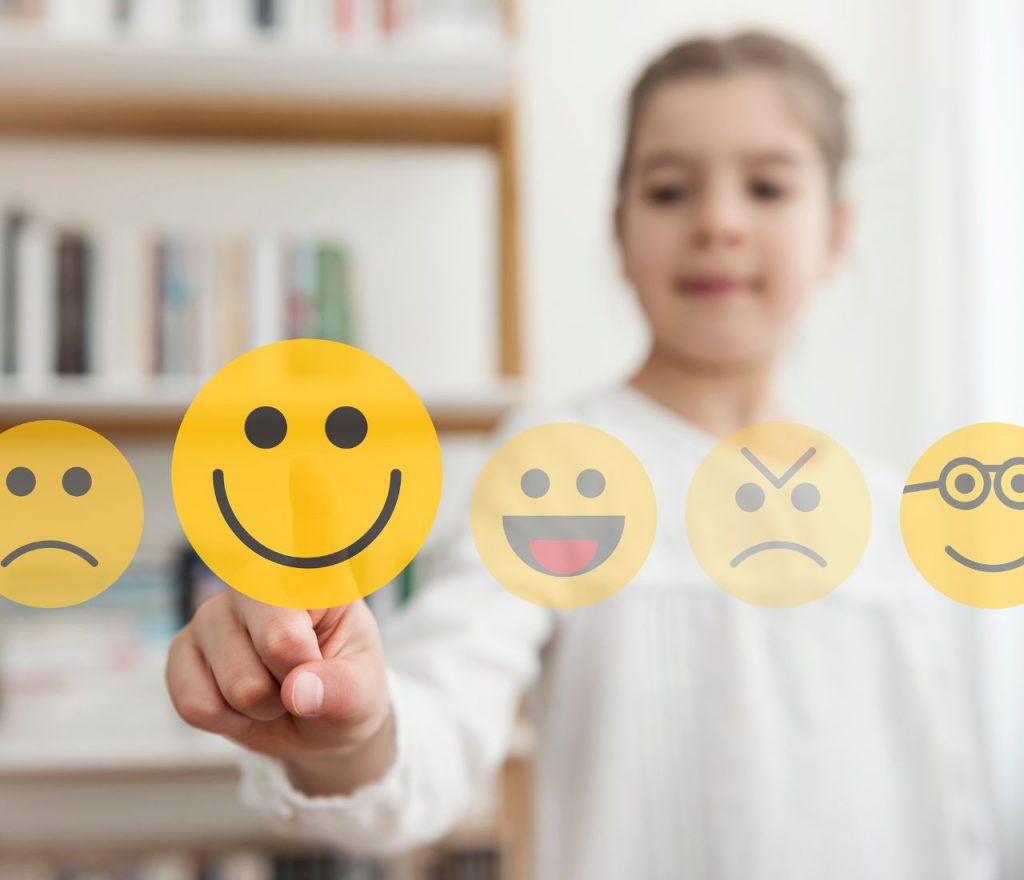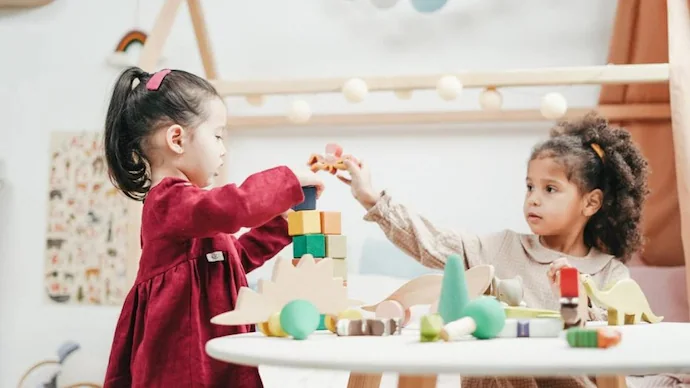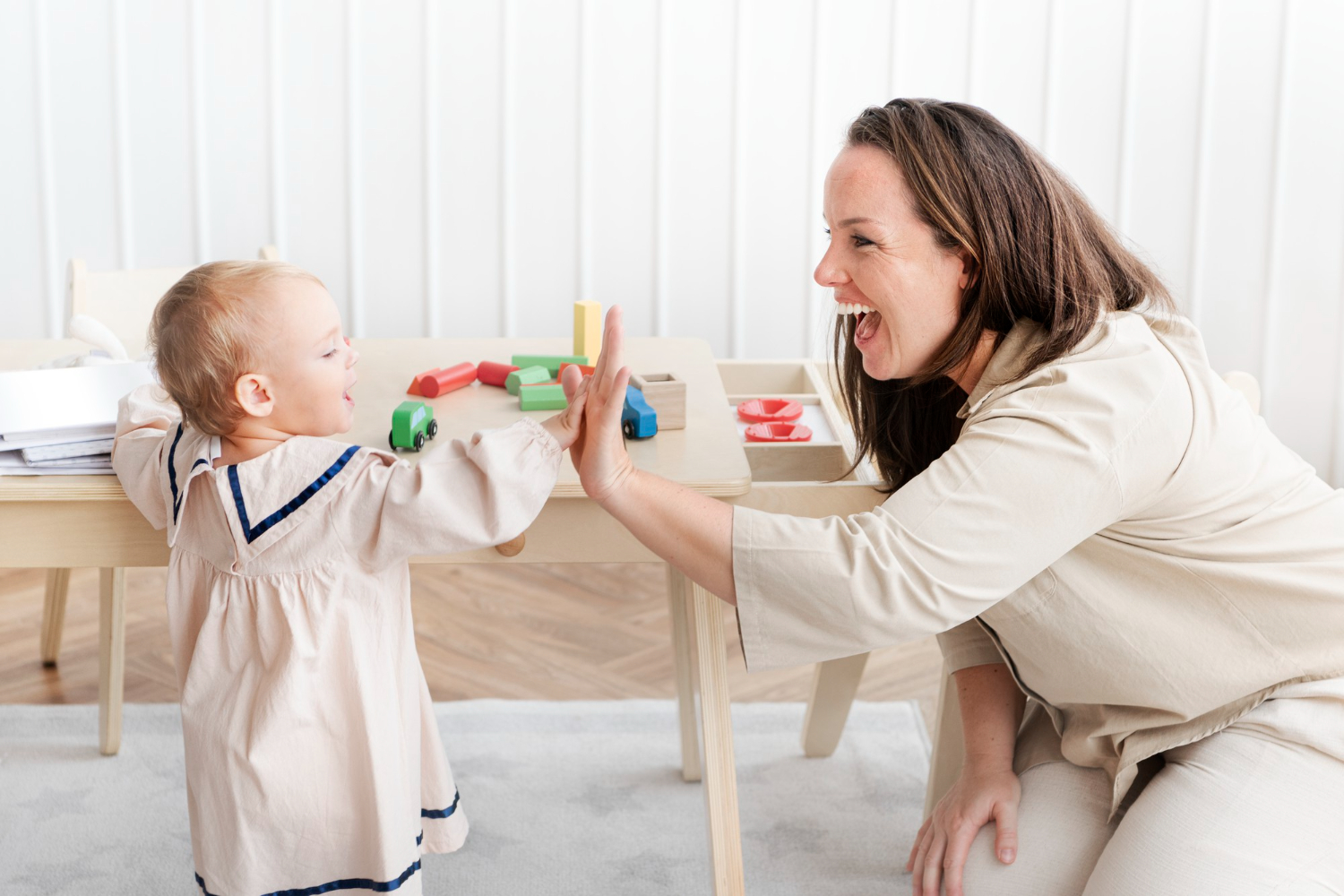Boosting Childs Emotional Intelligence Through Playful Interactions
To boost your child’s emotional intelligence, engage in playful interactions. Through games and make-believe scenarios, children develop empathy and better communication skills. Playful activities also help them regulate their emotions and build resilience, essential for coping with life’s challenges. Encouraging role playing and cooperative games fosters empathy and teamwork, nurturing their understanding of others’ emotions. Incorporating self-reflection activities and emotional check-ins enhances their self-awareness. Promoting emotional regulation through play helps children manage stress and conflicts effectively. Keep exploring how playful interactions can continue to support your child’s emotional development.
Key Takeaways
- Playful interactions enhance empathy and social skills in children.
- Games and make-believe scenarios foster emotional intelligence development.
- Role playing teaches perspective-taking and understanding of emotions.
- Engaging in cooperative games promotes teamwork and consideration of others.
- Playful activities aid in emotional regulation and conflict resolution.
Importance of Emotional Intelligence in Children

Understanding the significance of emotional intelligence in children is essential for fostering their overall well-being and social development.
Developing strong emotional intelligence in children not only enhances their social skills but also plays a pivotal role in safeguarding their mental health.
Children with high emotional intelligence are better equipped to navigate social interactions, communicate effectively, and build healthy relationships with their peers.
Research indicates that kids with well-developed emotional intelligence tend to have fewer behavioral problems, experience less anxiety and depression, and demonstrate a greater ability to cope with stress.
Benefits of Playful Interactions
To further enhance your child’s emotional intelligence, exploring the benefits of playful interactions can be a fun and effective way to foster their social and emotional development. Playful learning experiences provide a unique avenue for children to engage in activities that promote emotional development.
Through games, make-believe scenarios, and interactive play, children can learn to navigate complex emotions, develop empathy, and enhance their social skills.
Research has shown that engaging in playful interactions can help children regulate their emotions, improve their communication skills, and build resilience in dealing with various situations.
Developing Empathy Through Play

Engaging in playful interactions with others can greatly contribute to your child’s development of empathy, an important skill for understanding and connecting with the emotions of those around them. Role playing scenarios and cooperative games are effective tools for fostering empathy in children. Through role playing, your child can put themselves in someone else’s shoes, experiencing different perspectives and emotions. This helps them develop a deeper understanding of how others feel in various situations.
Cooperative games also play a significant role in nurturing empathy. When playing these games, children learn the value of teamwork, cooperation, and considering the feelings of others. By working together towards a common goal, they practice listening, empathy, and supporting their peers. These experiences can help your child recognize and respond to the emotions of others with kindness and understanding.
Incorporating role playing scenarios and cooperative games into your child’s playtime can have a lasting impact on their ability to empathize with others, enhancing their emotional intelligence and social skills.
Enhancing Self-Awareness in Children
Encouraging your child to reflect on their own thoughts, feelings, and actions can greatly enhance their self-awareness and emotional intelligence. Self-reflection activities, such as mindfulness exercises, can help your child become more in tune with their inner world. Simple practices like emotional check-ins can be integrated into daily routines, allowing your child to identify and label their feelings.
Journal prompts are another effective tool for promoting self-awareness. Encourage your child to write about their experiences, thoughts, and emotions. This process can help them gain a deeper understanding of themselves and how they interact with the world around them.
Promoting Emotional Regulation Through Play

Playing games and engaging in interactive activities can be powerful ways to help your child develop essential skills for emotional regulation. Through play therapy, children can learn to identify and express their feelings in a safe and supportive environment.
By engaging in various playful interactions, kids can practice managing their emotions, coping with stress, and resolving conflicts effectively. These experiences not only foster emotional development but also provide valuable opportunities for children to learn self-regulation skills that can benefit them throughout their lives.
Research shows that incorporating play into a child’s routine can greatly impact their ability to regulate emotions. Playful activities allow children to explore different emotional states, understand their triggers, and develop strategies to manage intense feelings.
Whether it’s through imaginative play, role-playing games, or creative expression, each interaction contributes to enhancing your child’s emotional regulation skills. By encouraging play-based approaches, parents can support their children in handling complex emotions and building resilience in the face of challenges.
Frequently Asked Questions
Can Emotional Intelligence Be Taught, or Is It Innate?
Emotional intelligence is a mix of nature and nurture. While some aspects may be innate, research shows that emotional development can be influenced through experiences and interactions. You have the power to foster these skills.
Are There Specific Age Groups That Benefit Most From Playful Interactions?
During early childhood, preschoolers benefit greatly from playful interactions to develop emotional intelligence. As children grow into adolescence, teenagers can also benefit from engaging in playful activities that foster emotional understanding and social skills.
How Can Parents Encourage Empathy in Competitive Play Situations?
In competitive play situations, encourage empathy by emphasizing teamwork over individuality. Model good sportsmanship in competition, highlighting the importance of fair play and respect for others. By fostering these values, you can help your child develop empathy skills.
What Are Some Practical Ways to Enhance Self-Awareness in Children?
To enhance self-awareness in children, engage in mindfulness activities like deep breathing or body scans. Use journaling prompts to help them reflect on their thoughts and emotions. Play feelings charades to encourage understanding and expression.
Can Playful Interactions Replace Traditional Therapy for Emotional Regulation?
Playful therapy can serve as an effective alternative to traditional methods for emotional regulation. Interactive games have shown a positive impact on emotional intelligence development. They offer a fun and engaging way to address emotional needs in children.
Conclusion
To sum up, engaging in playful interactions with your child can greatly enhance their emotional intelligence. By promoting empathy, self-awareness, and emotional regulation through play, you’re helping them develop important skills that will benefit them throughout their lives.
So, keep playing, laughing, and connecting with your child to nurture their emotional well-being and set them up for success in the future. Your efforts now will make a lasting impact on their emotional intelligence.

Hey there! 👋 I’m a proud mom and passionate writer, sharing my parenting journey. 📝 Join me as I navigate the ups and downs of motherhood, offering tips, advice, and a sprinkle of humor along the way. 🌟







